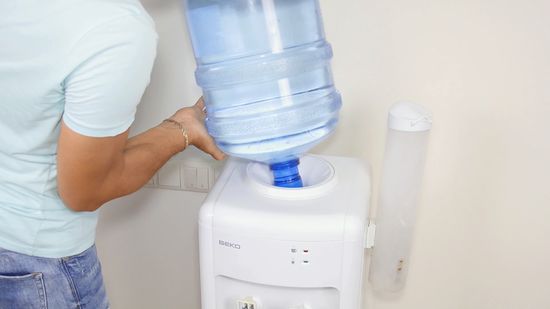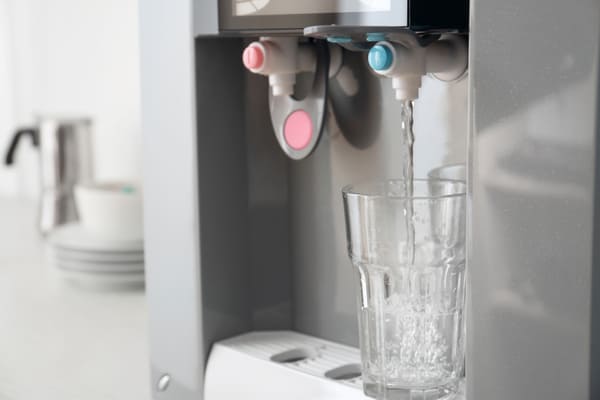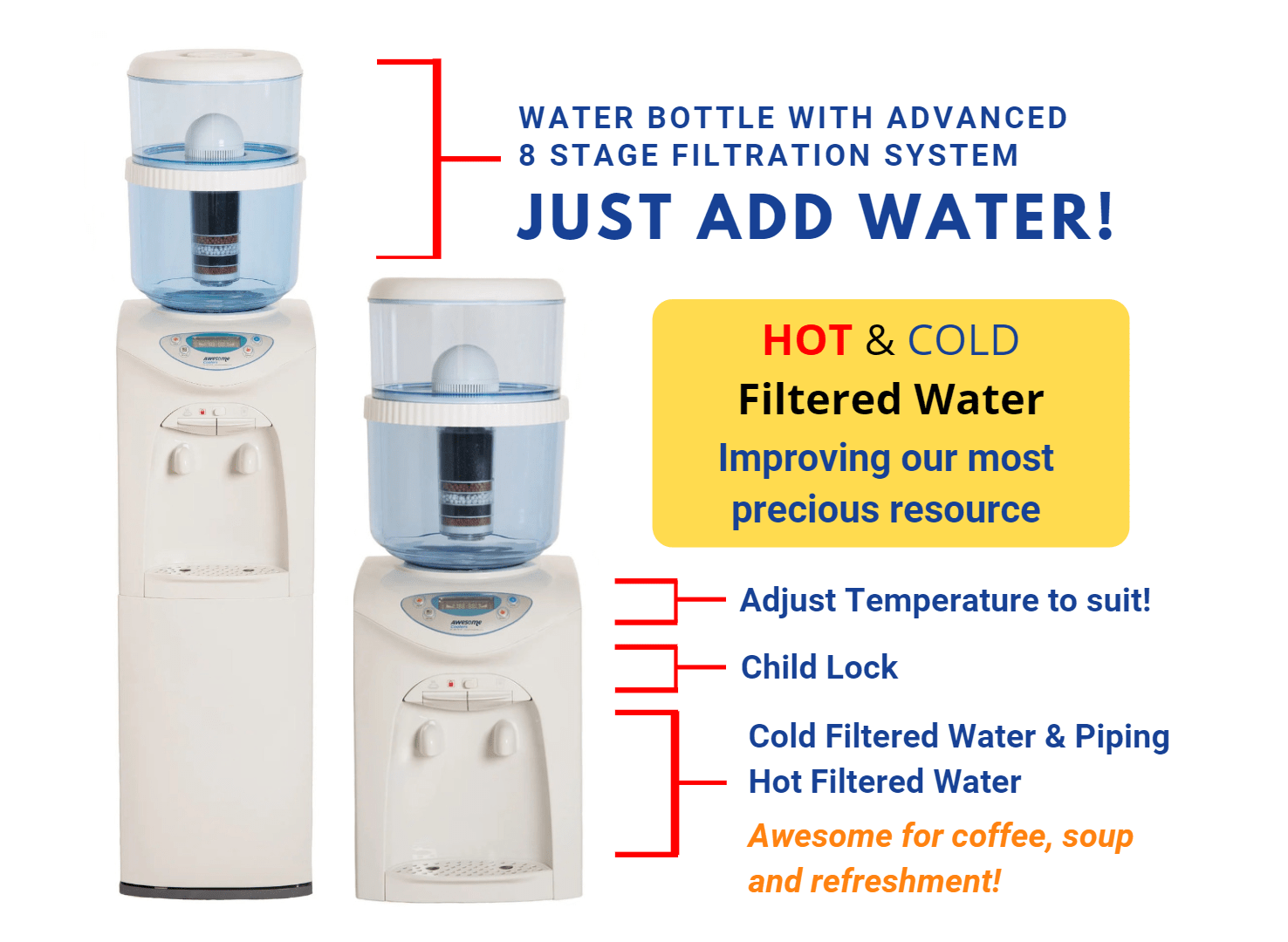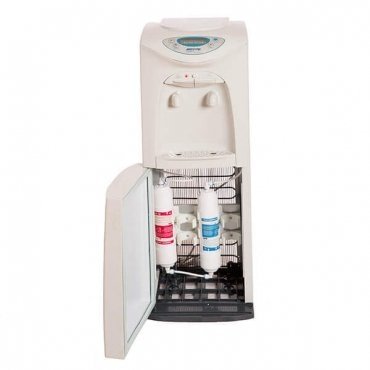Great Awesome Deals! Fast Shipping Across Australia!
Menu
-
-
Water Coolers
-
Water Filters & Purifiers
-
Water Filter System
-
Water Chiller
- Water Bottle
- Benchtop Water Purifier
- Water Distiller
- Replacement Water Filter Cartridges Guide
-
Locations
- Awesome Water Filters in Adelaide
- Awesome Water Filters in Darwin
- Awesome Water Filters in Hobart
- Awesome Water Filters in Brisbane
- Awesome Water Filters in Gold Coast
- Awesome Water Filters in Wollongong
- Awesome Water Filters in Sydney
- Awesome Water Filters in Melbourne
- Awesome Water Filters in Perth
- Awesome Water Filters in Canberra
-
- 1-800-789-781
- Login

Great Awesome Deals! Fast Shipping Across Australia!
Who Fixes Water Coolers in Australia?
August 17, 2021 6 min read

Water coolers are fast becoming a need in homes and companies across the world, including Australia. Why not? They’re convenient, healthy, and simple to put up. But they can be tripped up by a few typical blunders, such as filthy tanks, inadequate safety precautions, faulty electrical installations, and cracked water bottles. So the question is, who fixes water coolers? Let’s find out later.
These aren’t serious errors. They’re very simple to manufacture if you’re not diligent and don’t know what measures to take. You should avoid unauthorized repairs, fractured water bottles, BPA components, faulty wiring, dirty water tanks, and units without a hot water safety guard for your safety.
COMMON WATER COOLER PROBLEMS
The most typical problems with water coolers include clogged spouts, strange-tasting water, and temperature concerns. You may be able to rapidly resolve the problem with your water cooler, based on the nature of the problem. It’s vital to keep your water cooler in good working order to avoid costly difficulties later on. If you maintain your water cooler regularly, you will be more likely to identify which cooler element is causing the problem when a repair is required.
WHO FIXES WATER COOLERS?
Repairing a water cooler on your own is a cost-effective and very simple undertaking. Water that is overly hot or cold, as well as spouts that do not discharge quickly enough owing to wear or blockage, are common signs that something needs to be fixed. We’ll guide you through some basic troubleshooting so you can do the fixing yourself.
But if you’re unsure of your skills, experts from companies like Awesome Water Filters can help you out. If you have a trusted plumber or repairman, you can call them for help, too. Also, you may opt to call the company where you bought your water cooler for repair issues.
BASIC DIY WATER COOLER REPAIR

CHECK YOUR UNIT FIRST
It’s critical to keep your water cooler in good working order to avoid costly repairs later. If you regularly maintain your cooler, you should be familiar with every component and function and which element is causing problems when a repair is required.
Check your freon levels if your water cooler is no longer supplying cold water. If there appears to be an issue with the freon, you need to get it refilled by a professional. Only those with the appropriate certificates are permitted to handle freon.
Check if there are clean coils especially if you’re experiencing difficulties dispensing cold or hot water out of your dispenser. Prior to examining or cleaning them, make sure to unplug your machine from the power source to avoid getting an electric shock.
Not Cold Enough Water
Perform a reset on your water cooler if it is freezing or not getting cold enough.
Drain a few cups of water from both the hot and cold sides of the water cooler for this stage. Then turn off the cooler’s switches. Remove the machine from the outlet and leave it unplugged for 24 hours. When you plug it in again, make sure you turn on the buttons as well. After you’ve completed all of these steps, wait 5 hours before dispensing water to determine if it’s worked.
Strange Water Taste
If the water has a peculiar taste or isn’t coming out properly, clean the cooler and dispenser. Mold and mildew can grow in various areas. It obstructs water flow and sometimes causing a weird flavor, and contaminating your water. Cleaning and sanitizing your water cooler once every six months is a suitable remedy for this problem.
Leaking Water
It’s aggravating to deal with a leaking water cooler, but it’s simple to fix! It’s usually only a small hole in the bottle. It could also be a leaking tap. Replace the bottle, and you will resolve your issue.
Some Parts Not Functioning
You can buy new water cooler parts to replace the ones that aren’t working. If the previous stages have not solved the problem, this is the most sanitary and safest option. When repairing or replacing pieces on your cooler, consider how much it would cost to replace the complete cooler. It may even change some coolers at no additional cost by the firm itself.
REMINDER!
Keep in mind that placing the cooler in direct sunlight will encourage the growth of bacteria. As a result, keep the cooler somewhere with a moderate temperature, not too cold or too hot. We hope that by following the steps mentioned above, you will be able to repair a water cooler on your own.
COMMON USAGE MISTAKES THAT LEAD TO DAMAGE
Dirty Reservoir
Neglect is a typical water dispenser blunder. If left to its own devices, a water cooler can soon become a breeding ground for mold and bacteria. It’s believed that contaminants are present in 28% of water dispensers. They produce foul odors, foul tastes, and, in certain cases, disease. NewAir water coolers have stainless steel reservoirs to prevent bacterial and fungal contamination. However, no water cooler is fully safe if it has stagnant water and neglected basic maintenance.
CLEANING
Cleaning your water dispenser is quite simple.
You’ll need:
- Rubber gloves
- 1-gallon bucket
- Lemon juice
- Sponge
- Lint-free towel
Remove the bottle and unhook the water dispenser (make sure it’s empty first). Run all the taps until they’re dry, then unplug the back drain valve and empty the reservoir. We don’t advocate reusing the water after draining, so clean when as little water as possible.
Remove the top cover and the baffle beneath it once the reservoir has been drained. Using a sponge soaked in a mixture of water and lemon juice, scrub the interior of the reservoir as thoroughly as possible. When cleaning a water dispenser, avoid using bleach or other harsh chemicals. They have the potential to harm it. You also don’t have to clean anything related to the hot water tank. The tank is sanitized by heating the water. Therefore there is no risk.
After you’ve finished scrubbing the tank:
- Rinse it off with clean water.
- Drain the water from the drain valve after washing.
- Repeat as needed to get rid of the lemon flavor if it’s bothersome.
- Using water and lemon juice, scrub the drip tray and valves until the reservoir is dry. Then wipe off the outside of the dispenser and the cooling coils in the back with a lint-free towel.
- Replace the baffle and top over with a new bottle once the reservoir is dry.
Wrong Electrical Setup
The majority of water dispensers plug into a conventional 3-prong electrical socket. Avoid connecting them with an extension cord or converter to risk shorts, fires, or electric shocks. Never remove the ground prong or make any other changes to the electrical line, and never connect them to an overloaded circuit.
External switching devices, such as a timer, should be avoided. You should never use them outside, where rain or water could short out the electric components. Unplug the dispenser before moving, cleaning, or repairing it.
Water Bottles with Crack
When you place a water bottle on top of a water dispenser, the water drops into the reservoir and fills it up. As a result, the air is drawn up into the bottle until the water reaches the lips. It provides an airtight seal that keeps any further air out.
There isn’t much air in the bottle, to begin with – it’s virtually a vacuum. The water is kept in check as long as the pressure inside and outside the container is equalized. As a result, the broken seal, allowing additional air and water in. When you stop distributing, the water fills the bottle to the top, and the pressure returns to normal.
One of the most embarrassing water dispenser mistakes you can make is placing a broken jug of water on top of the dispenser. Because the bottle’s cracks enable air to enter repeatedly, the water spills out over the floor instead of distributing in an orderly manner. Bottles that have cracked are more prevalent than you may believe. Careless or incorrect handling might result in subtle hairline fractures that aren’t always visible. Always handle your water bottles carefully and inspect them for leaks before placing them on top of a water dispenser.
FINAL THOUGHTS
Having a hot and cold water dispenser provides a lot of benefits. It saves water, enhances the quality of the water you drink, and provides you with hot and cold water right away at your home or business. You can get the most out of your water dispenser if you know the most common faults and how to remedy them.
Who fixes water coolers in Australia? Awesome Water Filters can recommend professionals who can solve your problem. But before calling a professional, you can try some DIY steps to repair your awesome water cooler.
Subscribe
Sign up to get the latest on sales, new releases and more …




